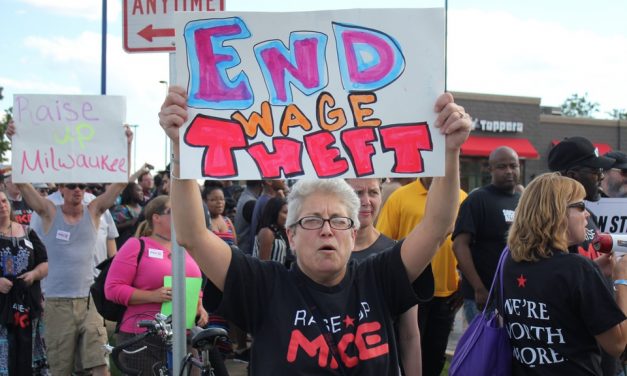With “wage theft” by Michigan employers estimated at hundreds of millions of dollars per year, some lawmakers in Lansing are eyeing a substantial increase in the penalties imposed on violators.
Wage theft comprises companies which fail to pay hourly workers overtime pay, or they pay subminimum wages or refuse to fully compensate employees for time worked. It’s not a high-profile issue though it affects tens of thousands of workers, many who earn modest wages and are stymied in their efforts to collect owed backpay.
New bills introduced by House and Senate Democrats in the state Capitol would compensate victims of wage theft with three times the amount that their employers shortchanged them.
The legislation would also make repeated violations a felony and would increase funding for state enforcement so that workers don’t have to take their bosses to court to receive the money they’re owed.
The penalties have not increased in 50 years, which may be why an estimated 130,000 Michigan workers have experienced wage theft in recent years. About 61 percent of the victims are women, according to Peter Ruark, an analyst for the Michigan League for Public Policy.
“It’s about time someone in Lansing stands up for (employees) to make sure everyone who works hard for a living gets the pay they’ve earned,” said Michigan AFL-CIO President Ron Bieber.
On a national scale, enforcement by the U.S. Labor Department can be a slow, tedious process that causes many workers to abandon complaints filed. Nonetheless, at the federal level during the 2016 fiscal year the department ordered employers to pay more than $266 million in back wages to 283,000 affected workers.
Investigators found that more than $5.4 million was owed to 10,300 fast-food workers, as they identified violations in more than eight out of every 10 cases handled. In one case, a Labor Department investigation found that a Texas hotel had shorted a worker $13,000 in overtime pay. Those back-payments doubled the woman’s earnings over a 1-year period.
In March a bill passed by Congress and signed by President Trump ended a rule imposed during the Obama administration that “blacklisted” federal contractors who engage in wage theft. Companies were blocked from competing for large federal contracts, those over $500,000, until they cleared up the wage theft complaints filed against them. A report presented to the Senate at the time of the March vote on Capitol Hill that showed that 66 of the federal government’s 100 largest contractors have at some point violated federal wage and hour laws.



